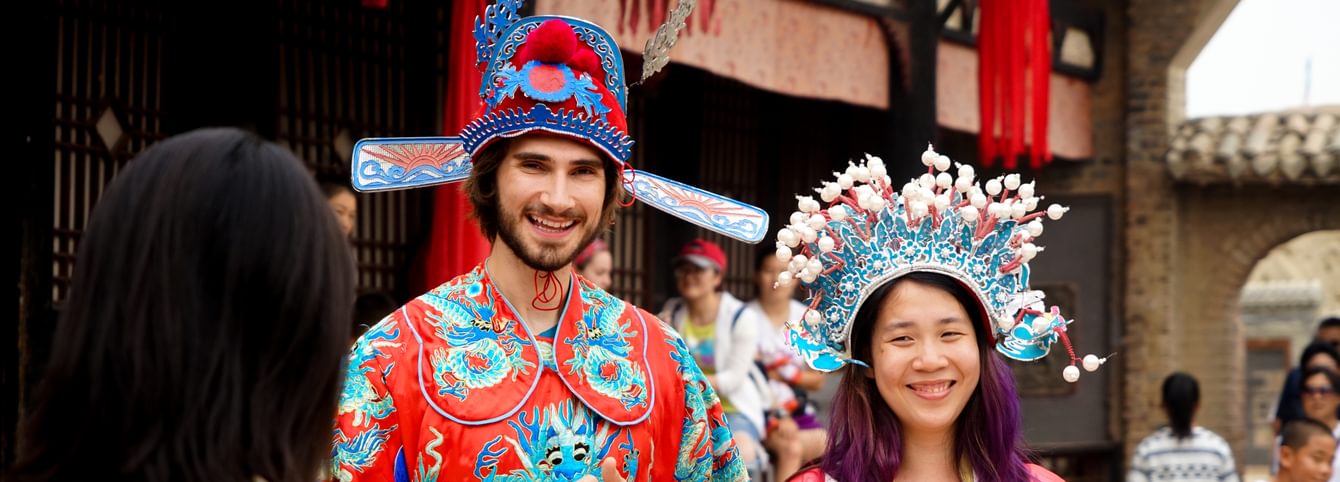CLS Program
Program Overview
The Critical Language Scholarship (CLS) Program provides immersive summer programs for U.S. undergraduate and graduate students to learn languages of strategic importance to the United States’ national security and economic prosperity. Through intensive language instruction and structured cultural activities, participants receive the equivalent of one year of language study in just eight weeks.
Since its inception in 2006, the CLS Program has supported over 10,000 participants from all 50 U.S. states, D.C., and Puerto Rico in building critical language skills and intercultural competence. CLS alumni represent all 50 states, the District of Columbia, and Puerto Rico.
CLS alumni remain part of a vibrant global network, with opportunities to stay engaged through year-round activities and special initiatives that foster continued learning, professional growth, and connection.
Languages and Levels
The CLS Program overseas offers instruction in nine critical languages:
| No Previous Study Required |
|---|
| Two Years of Study Required (Or Equivalent) |
|---|
Program Structure
CLS Program institutes take place over eight weeks and are designed to meet the needs of students from a variety of language levels and backgrounds. Some CLS institutes require one to two years of prior language study (or the equivalent), while others welcome students with no prior background in the language.
Formal classroom language instruction is provided for a minimum of 18 hours per week. Extracurricular activities are designed to supplement the formal curriculum, including regular one-on-one meetings with native speaker language partners for conversational practice, as well as cultural activities and excursions designed to expand students’ understanding of the history, politics, culture and daily life of their host country.
Applicants may only apply once per application cycle for a single language. Applicants who submit multiple applications will be considered ineligible.
Program Benefits
Participants in the CLS Program will receive:
- Intensive language instruction and cultural enrichment experiences;
- Textbooks and language learning materials;
- Official certification of language gains through ACTFL OPI test;
- Academic credit issued through Bryn Mawr College
- International and domestic travel between the student's home city in the U.S. and the CLS Program site abroad;
- Visa application fees, where applicable; and
- Room, board, and program-sponsored travel within the host country or location.
Additional program benefits may provided at a later date.
Other expenses, such as, but not limited to, will not be covered:
- U.S. passport fees (except for students who are eligible and apply for CLS Passport Assistance);
- Cost of medical exams and any follow-up visits necessary to pass the medical review process, as determined by the CLS Program; and
- Cost of immunizations required for entry, as well as costs for travel health clinical appointments.
The CLS Program is a program of the U.S. Department of State with funding provided by the U.S. Government and supported in its implementation by American Councils for International Education.
U.S. Department of State
The mission of the U.S. Department of State’s Bureau of Educational and Cultural Affairs (ECA) designs and implements educational, professional, and cultural exchange and other programs that create and sustain the mutual understanding with other countries necessary to advancing United States foreign policy goals. ECA programs cultivate people-to-people ties among current and future global leaders that build enduring networks and personal relationships and promote U.S. national security and values.
American Councils for International Education
American Councils for International Education advances scholarly research and cross-border learning through the design and implementation of educational programs that are well grounded in key world languages, cultures and regions. It contributes to the creation of new knowledge, broader professional perspectives, and personal and intellectual growth through international training, academic exchange, collaboration in educational development, and public diplomacy. With a presence in the U.S., Russia and Eurasia for nearly four decades, in addition to representation in over thirty countries across Asia, the Middle East and Southeastern Europe, American Councils strives to expand dialog among students, scholars, educators and professionals for the advancement of learning and mutual respect in the communities and societies in which we work.
Founded in 1974 as an association for area and language professionals, American Councils has focused its expertise on academic exchange, professional training, distance learning, curriculum and test development, and research. In its four decades, American Councils has developed into one of the premier American education and international training organizations, offering quality-assured, intensive overseas language study and research programs for U.S. undergraduates, graduate students, teachers and scholars.


